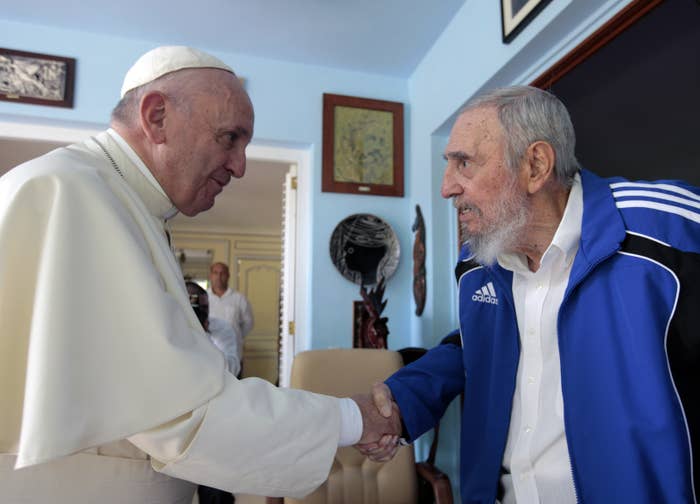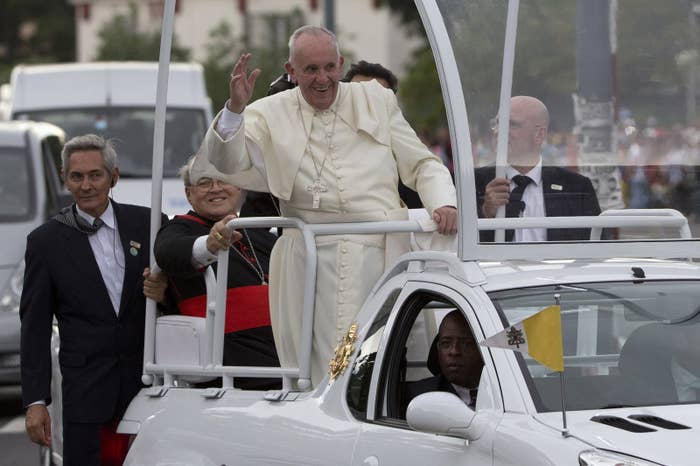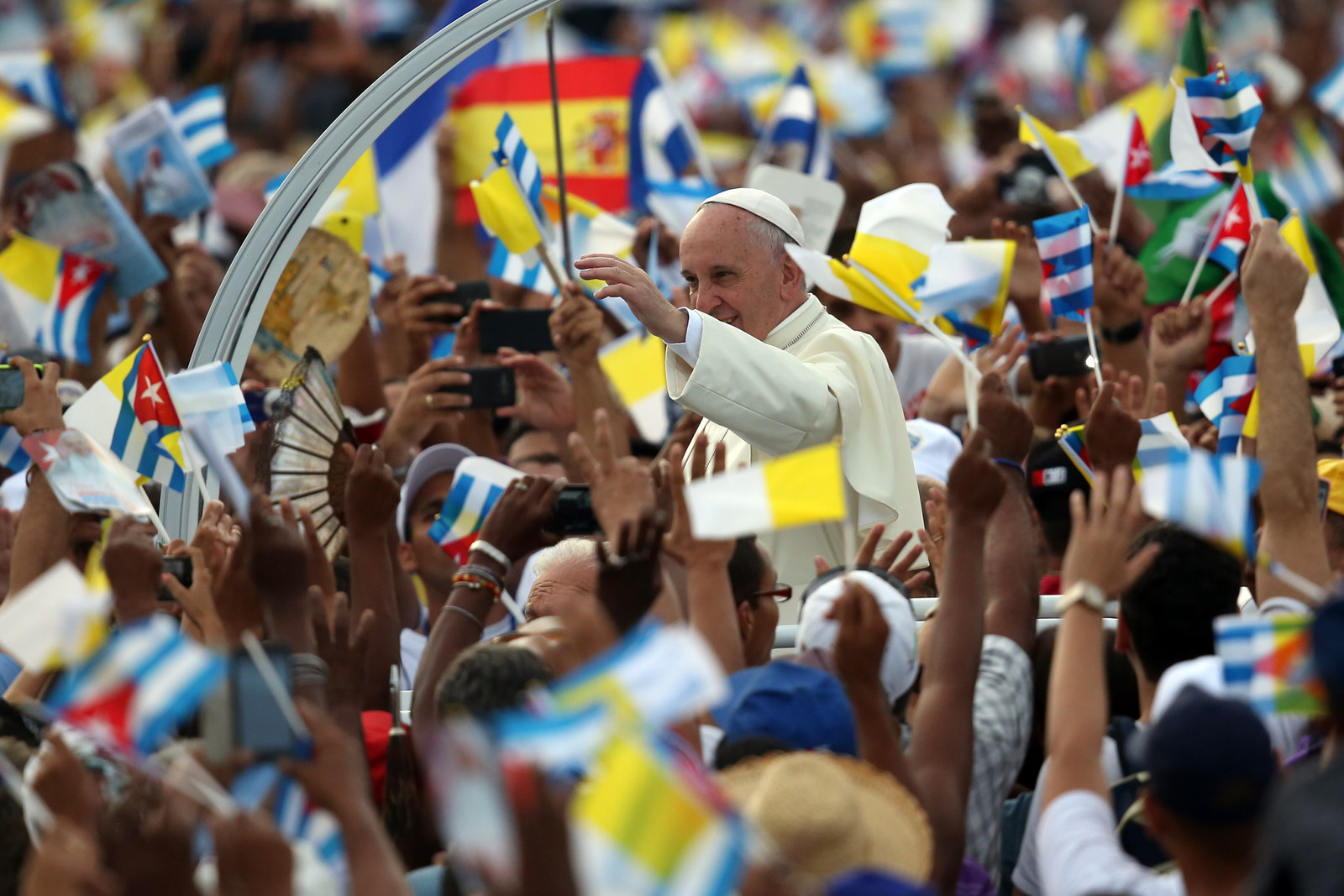
Pope Francis met with former Cuban leader Fidel Castro in Havana on Sunday, a day after the Pontiff praised the normalization of relations between Cuba and its former Cold War foe, the United States, calling it an example to the rest of the world.
In a meeting described by Vatican officials as "familiar and informal," the Pope met the former Cuban revolutionary at his home, shortly after celebrating Sunday mass.
The two men spoke about "protecting the environment and the great problems of the contemporary world," according to Vatican spokesman Father Federico Lombardi.
The pair also exchanged gifts, with Castro receiving books and CDs, while Francis will take home Fidel and Religion, a 1985 book penned by a Brazilian priest.
According to the Vatican, the book's dedication reads: "For Pope Francis, on occasion of his visit to Cuba, with the admiration and respect of the Cuban people."

On Saturday, in his first remarks in the Caribbean nation, Francis said the "world needs reconciliation" and called the U.S.-Cuba diplomatic efforts an example "for all the world."
Francis, the first Latin American pope, played a key role as the U.S. and Cuba worked to restore diplomatic relations for the first time in more than 50 years, prodding the two nations to talk and secretly hosting meetings at the Vatican.

The trip, part of a 10-day tour of Cuba and the United States, kicked off in Havana with a red carpet arrival for pope as he stepped off a jet and onto the tarmac, where he met with Cuban President Raul Castro.
"For some months now, we've been witnessing an event that fills us up with hope," he said in remarks at the airport. "The process of normalizing relations between two peoples after many years of estrangement. It is a sign of progress."
Castro also thanked the pope's role in the effort, and praised the pontiff's critiques of the world's economic system that has "turned money into its idol."
The pope received a warm welcome in the island nation, where the Cuban government offered a day's pay, snacks, and transportation to state workers who gathered on the pontiff's route, the Associated Press reported.
Earlier this year, the U.S. and Cuba re-opened embassies and the U.S. has eased travel restrictions, but the Vatican secretary of state told the AP the pope hopes the U.S. enforced embargo will also soon be removed.

In a teleconference at the beginning of his trip, in which he was asked by students in Havana and New York about the U.S. embargo, Francis said he would "do everything possible to build bridges, to remove barriers, and to foster communication."
Vatican officials said, however, that the 10-day trip is a pastoral, not political, mission.
Francis is scheduled to say mass at Revolution Square in Havana on Sunday, and meet with government officials at the Palace of the Revolution.
He is also scheduled to visit Holguin and Santiago on Monday, where he will meet with bishops of the Church.
Finally, Francis plans to celebrate a final mass at Minor Basilica of the Shrine of Our Lady of Charity del Cobre on Tuesday before leaving for Washington D.C.

